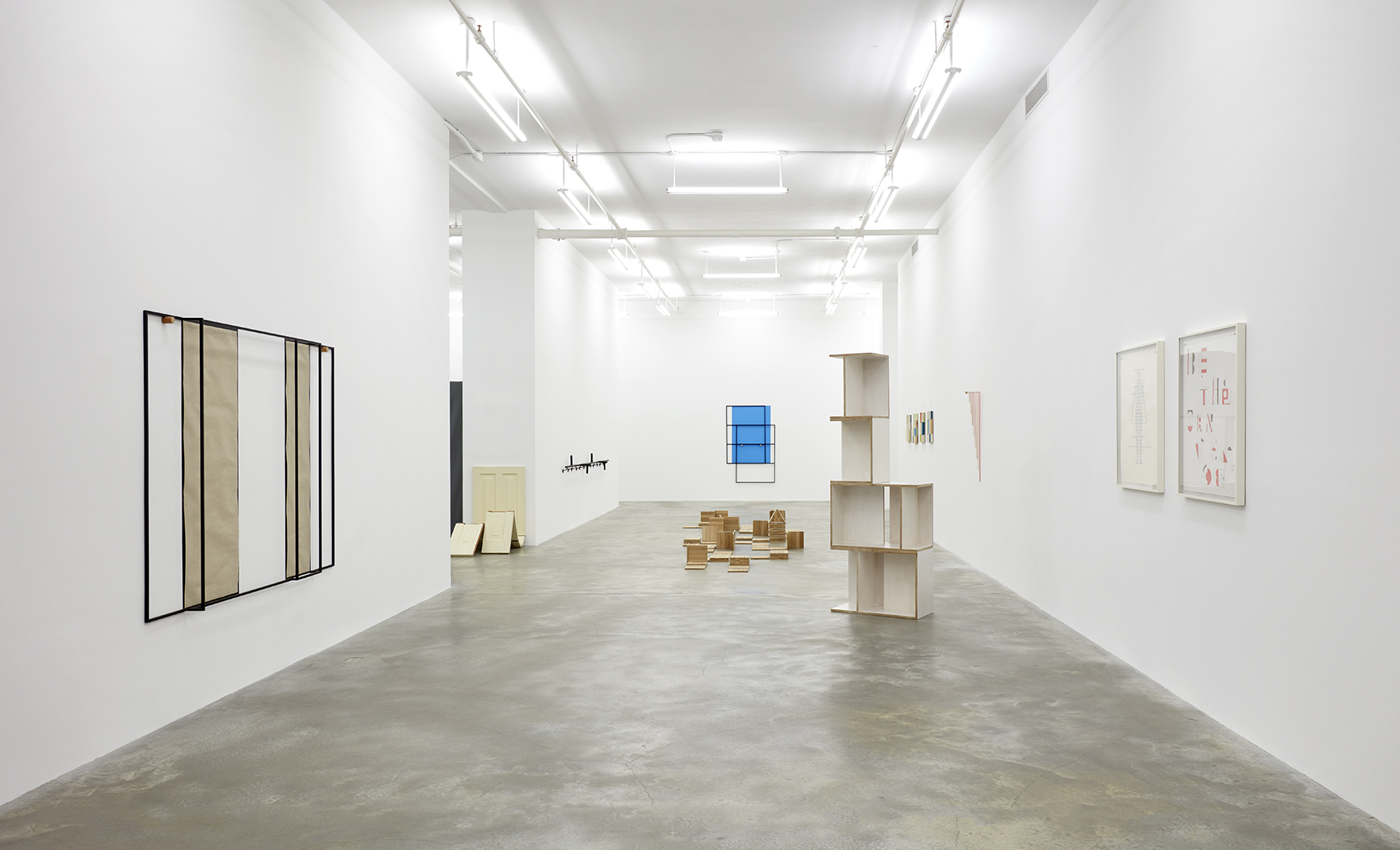Casey Kaplan


Review: Mateo López
March 2019
By Scott Indrisek
“The relation you have with the object is yours, not mine,” Mateo López said on a recent Thursday afternoon at the gallery, where he was on hand to personally activate and engage with his most recent exhibition. An heir to Hélio Oiticica and the Neoconcrete tradition, the Colombian artist makes work that evinces a light touch and a precious fragility – enough to make one think twice before manhandling these airy pieces, composed of cardboard, wood, metal and the occasional mango. Their visual logic is often closer to that of puzzles and games than sculpture, but “Play” contains enough nuanced notes to keep it from being a simple exercise in kid-friendly interactivity.
López’s invitation to become involved in a bodily way begins near the entrance, with two poster-style drawings on paper. One, from 2018, exhorts the viewer to ‘Be the Sentence’, depicting a series of anatomical dummies contorting their forms into the phrase’s constituent letters. The other, “Disclose” (2016), offers more obtuse commands: ‘Log out’, ‘Leave the house’, ‘Face the mob’. From there, López’s exhibition sprawls out like a messy playroom, with “Parquet” (2018) taking up the centre of the space – a collection of connected tiles that can be tipped or stacked in various combinations. Like everything here, it’s in a state of flux, begging to be tweaked. Nearby there’s a trio of wood-and-textile wall pieces (modelled on the children’s game Jacob’s ladder), constructed in such a way that they can be folded and manipulated. It’s clear that López views his ideal collector as someone who is engaged, anxious of stasis, possessed of a certain restlessness and a lust for the modular.
A side room collects a suite of smallscale works, including one that borrows a font designed by Josef Albers to spell out and abstract ‘truth’. Appropriately for our current moment, manipulating the work’s four movable wooden slats garbles the word beyond all recognition. “Spatial construction No. 19 with mango” (2015) is a tiny wooden cage trapping the titular fruit inside it: Sol LeWitt goes to the tropics. A stop-motion animation, meanwhile, shows various tiny struc- tures being made, broken down and reassembled out of colourful bricks – a manifestation of the artist’s own dgety, constructive urges. López stud- ied architecture before dropping out to pursue a course in ne art; his practice celebrates the joy of building, without being dragged down by the pesky demands of bureaucrats, engineering and structural stability.
But there’s something so innocent about “Play” that I was left looking for a bit more bite. That, I found (or imagined) in a matte black handrail running the length of one wall. The sculpture in question is unassuming, but on second look turns out to be a succession of police batons, joined end to end. A further, welcome note of perverse humour is provided by “I am Sitting in a Room” (2017), a wooden door that has been cut and articulated so that it resembles a drunk man passed out in a doorway. “Threshold (Umbral)” (2017) is the show’s most expansive piece, a room-sized installation comprising rectangular colour blocks applied to the walls and three grey structures mounted on bright orange wheels, resembling generic wardrobes or empty storage units. The idea is to manoeuvre these rolling containers, which can be joined together to create linked hallways – you’re allowed to walk inside, carefully – or pushed against the walls, synced up with the same-heighted wall paintings. Whereas most of “Play” solicits a youthful sense of wonder and experimentation, “Threshold (Umbral)” recalls a different sort of childhood remnant: the time- out. It’s possible to tuck oneself away inside the piece, to hide for a moment – just the right mix of the juvenile and the transgressive.